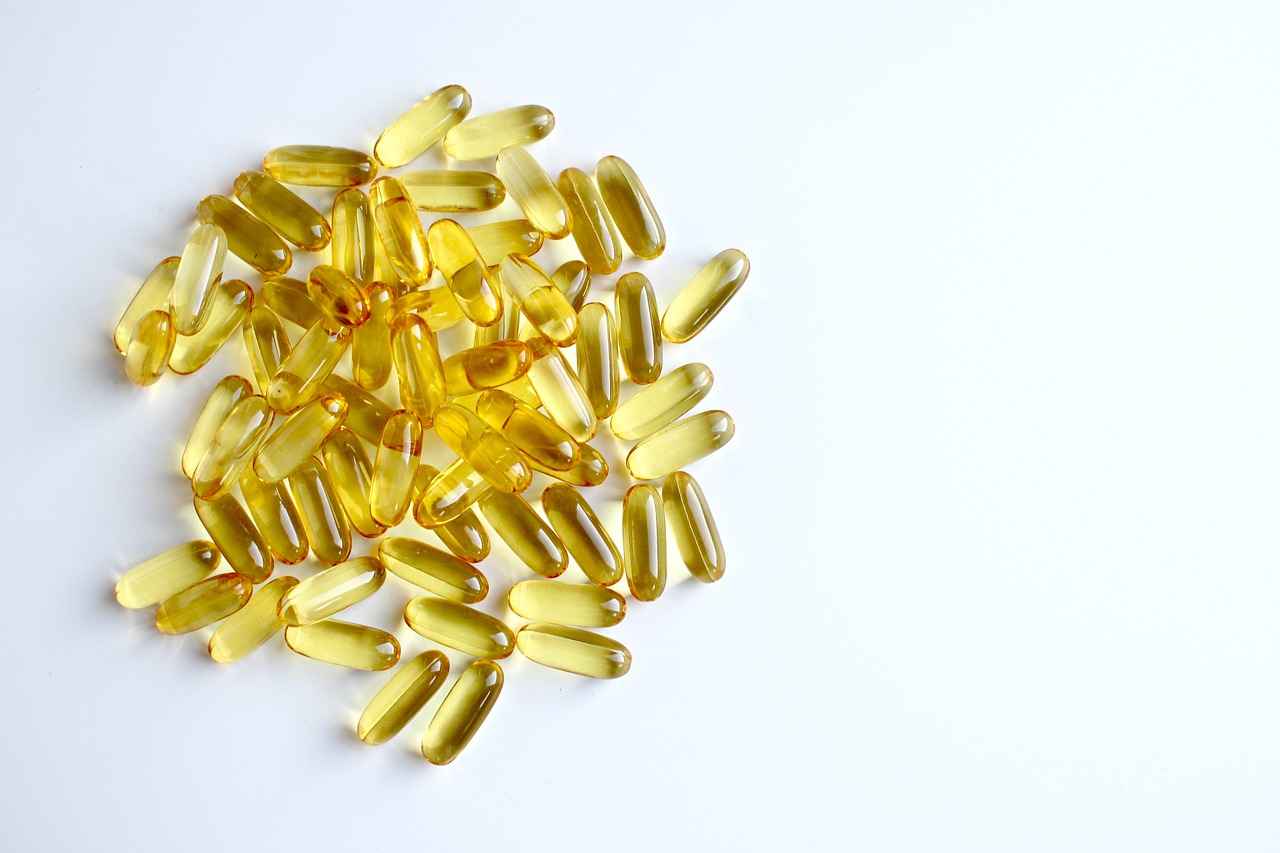This article delves into the science behind collagen supplements and their potential anti-aging benefits. It addresses common questions and provides insights for those considering collagen as part of their wellness routine.
What is Collagen?
Collagen is a vital protein that provides structure to skin, bones, and connective tissues. It is essential for maintaining skin elasticity and overall health. As we age, our body’s natural collagen production decreases, leading to visible signs of aging.
How Do Collagen Supplements Work?
Collagen supplements are thought to stimulate the body’s own collagen production. They may enhance skin hydration and elasticity, which are crucial for a youthful appearance.
The Science Behind Collagen Production
The body naturally produces collagen, but this process declines with age. Factors such as diet, sun exposure, and lifestyle choices can significantly influence collagen synthesis.
Age-Related Collagen Loss
As we age, collagen levels decrease, leading to wrinkles and sagging skin. Understanding this process is vital for anyone looking to maintain a youthful appearance.
Factors Affecting Collagen Levels
- Dietary choices
- Sun exposure
- Smoking and alcohol consumption
Types of Collagen Supplements
There are various types of collagen supplements available, including hydrolyzed collagen and collagen peptides. Each type has unique benefits and absorption rates.
Health Benefits Beyond Anti-Aging
While collagen is often marketed for skin health, it may also offer benefits for joint support and gut health. These additional benefits make collagen a versatile supplement.
Joint Health and Collagen
Collagen plays a critical role in maintaining joint health. Supplements may help reduce joint pain and improve mobility, especially in older adults.
Gut Health and Collagen
Emerging research suggests a connection between collagen and gut health. Collagen may support digestive wellness and maintain gut integrity.
Choosing the Right Collagen Supplement
With numerous options on the market, selecting the right collagen supplement can be overwhelming. Here are some practical tips:
- Quality and Sourcing: Not all collagen supplements are created equal. Look for reputable brands that source their collagen responsibly.
- Dosage Recommendations: Understanding the appropriate dosage is crucial. Consult with experts for personalized advice.
Potential Side Effects and Considerations
While collagen supplements are generally considered safe, some individuals may experience side effects. It’s important to be aware of potential allergic reactions and interactions with medications.
Conclusion: Are Collagen Supplements Worth It?
In conclusion, collagen supplements may offer various benefits, particularly in combating signs of aging. However, individual results may vary, and it’s essential to consider personal health goals and consult with professionals.

What is Collagen?
Collagen is a crucial protein that serves as the primary building block for various structures in the body, including the skin, bones, tendons, and ligaments. It is the most abundant protein in mammals, making up about 30% of the body’s total protein content. As we age, our natural collagen production begins to decline, leading to a variety of health issues, particularly visible signs of aging such as wrinkles, sagging skin, and joint pain.
Understanding collagen is essential not only for grasping the aging process but also for recognizing how supplements can aid in maintaining youthful skin and overall health. Collagen plays a significant role in maintaining skin elasticity and hydration, which are essential for a youthful appearance. Additionally, it contributes to the strength and resilience of bones and connective tissues.
There are several types of collagen, each serving different functions in the body. The most common types include:
- Type I: Found in skin, tendons, and bones, this type is essential for skin health.
- Type II: Primarily located in cartilage, it is crucial for joint health.
- Type III: Often found alongside Type I, it supports the structure of muscles, organs, and blood vessels.
As collagen levels decrease with age, the body becomes more susceptible to the effects of aging. This decline can be exacerbated by factors such as poor nutrition, excessive sun exposure, and lifestyle choices like smoking. Therefore, incorporating collagen supplements into one’s diet may help counteract these effects by replenishing collagen levels and supporting overall health.
In summary, collagen is a vital protein that underpins the structure and function of various tissues in the body. Understanding its importance can help individuals make informed decisions about collagen supplementation as a means to promote health and counteract the aging process.

How Collagen Supplements Work
Collagen supplements have gained significant popularity due to their potential to enhance the body’s natural collagen production. This section delves into the various mechanisms through which these supplements may improve skin elasticity and hydration, providing a deeper understanding of their benefits.
When ingested, collagen supplements are broken down into smaller peptides, which are then absorbed into the bloodstream. These peptides may stimulate fibroblast cells in the skin, which are responsible for producing collagen. This process can lead to an increase in collagen synthesis, potentially counteracting the natural decline that occurs with aging.
Furthermore, collagen peptides may enhance the skin’s ability to retain moisture. Research indicates that they can improve skin hydration levels, leading to a more youthful appearance. By boosting hydration, collagen supplements can also help reduce the appearance of fine lines and wrinkles, making the skin look plumper and healthier.
In addition to skin benefits, collagen supplements may also play a role in supporting the skin’s overall structure. The presence of collagen in the dermis provides strength and elasticity, which are essential for maintaining a youthful look. As collagen levels drop with age, the skin can become saggy and less resilient. By replenishing collagen through supplementation, individuals may experience firmer and more elastic skin.
Moreover, collagen supplements can have a positive impact on the skin’s barrier function. A healthy skin barrier is crucial for protecting against environmental stressors and preventing moisture loss. By reinforcing this barrier, collagen may help improve overall skin health, leading to a more vibrant complexion.
In summary, collagen supplements work by stimulating the body’s own collagen production, enhancing skin hydration, and improving elasticity. These mechanisms collectively contribute to a more youthful and radiant appearance, making collagen supplementation a popular choice for those seeking to combat the visible signs of aging.
The Science Behind Collagen Production
Collagen is a crucial protein that serves as the building block for various tissues in our body, including skin, bones, and cartilage. As we age, the natural production of collagen begins to decline, which can lead to visible signs of aging such as wrinkles, sagging skin, and decreased joint flexibility. Understanding the biological processes involved in collagen synthesis is essential for appreciating the potential benefits of collagen supplements.
Collagen production occurs primarily in fibroblasts, specialized cells found in connective tissues. The process begins with the synthesis of pro-collagen, a precursor molecule that undergoes several modifications before becoming functional collagen. This transformation involves the hydroxylation of proline and lysine amino acids, which is dependent on vitamin C. Therefore, a deficiency in this vital nutrient can significantly hinder collagen synthesis.
Several factors influence the body’s ability to produce collagen:
- Age: As mentioned earlier, collagen levels naturally decrease with age, particularly after the age of 25, leading to a gradual decline in skin elasticity and hydration.
- Sun Exposure: Ultraviolet (UV) radiation can damage collagen fibers and accelerate its breakdown, contributing to premature aging.
- Diet: A diet lacking in essential nutrients, particularly proteins, vitamins, and minerals, can impair collagen production. Foods rich in antioxidants can help protect existing collagen from degradation.
- Lifestyle Choices: Smoking and excessive alcohol consumption can negatively affect collagen synthesis and overall skin health.
In conclusion, understanding the biological processes of collagen production and the various factors affecting it can empower individuals to make informed decisions about their health and wellness. By considering collagen supplements and adopting a healthy lifestyle, one may potentially mitigate some of the effects of aging and maintain healthier skin and joints.
Age-Related Collagen Loss
As we age, our bodies undergo various biological changes, one of the most significant being the decline in collagen production. Collagen is a crucial protein that serves as the foundation for our skin, bones, and connective tissues. This loss of collagen can lead to a range of visible signs of aging, including wrinkles, sagging skin, and decreased skin elasticity. Understanding the implications of age-related collagen loss is essential for anyone looking to maintain a youthful appearance and overall health.
The decline in collagen typically begins in our late 20s and accelerates as we reach our 40s and beyond. This reduction not only affects our skin but also impacts our joints, hair, and nails. With less collagen, our skin becomes thinner and less resilient, making it more susceptible to damage from environmental factors such as sun exposure and pollution.
Moreover, the decrease in collagen can lead to joint pain and stiffness, as collagen is vital for maintaining the integrity of cartilage. This can result in conditions such as osteoarthritis, which is more prevalent in older adults. Additionally, the gut health may be compromised, as collagen plays a role in maintaining the gut lining, potentially leading to digestive issues.
To combat the effects of collagen loss, many individuals are turning to collagen supplements as a proactive measure. These supplements aim to boost collagen levels in the body, thereby promoting skin hydration, elasticity, and overall joint health. However, it’s essential to approach these supplements with informed caution and seek advice from healthcare professionals.
In summary, age-related collagen loss is a natural part of aging that can have significant effects on our skin and overall health. By understanding these changes and exploring potential solutions, individuals can take proactive steps toward maintaining their vitality and youthful appearance.
Factors Affecting Collagen Levels
Collagen is a crucial protein that supports the structure and elasticity of our skin, bones, and connective tissues. As we age, the natural production of collagen diminishes, leading to various signs of aging. However, several lifestyle factors can further influence collagen levels, contributing to its depletion. Understanding these factors is essential for maintaining healthy collagen levels and overall skin vitality.
- Diet: A balanced diet rich in vitamins and minerals is vital for collagen production. Nutrients such as vitamin C, found in citrus fruits, and amino acids from protein sources like fish, chicken, and legumes are essential for synthesizing collagen. In contrast, diets high in sugar and processed foods can accelerate collagen breakdown, leading to premature aging.
- Sun Exposure: Excessive sun exposure can significantly affect collagen levels. UV rays can damage collagen fibers and hinder its production, leading to skin sagging and wrinkles. Protecting the skin with sunscreen and clothing can help mitigate these effects and preserve collagen.
- Hydration: Staying hydrated is crucial for maintaining skin elasticity and supporting collagen function. Dehydration can lead to dry, flaky skin, which can exacerbate the appearance of fine lines and wrinkles. Drinking adequate water daily can help keep the skin plump and healthy.
- Smoking: Tobacco smoke contains harmful chemicals that can damage collagen and elastin, leading to accelerated skin aging. Quitting smoking can significantly improve skin health and support collagen preservation.
- Stress: Chronic stress can lead to an increase in cortisol levels, which negatively impacts collagen production. Practicing stress management techniques, such as meditation or yoga, can help maintain collagen levels.
In conclusion, various lifestyle factors play a significant role in collagen levels. By adopting a balanced diet, protecting the skin from sun damage, staying hydrated, avoiding smoking, and managing stress, individuals can support their collagen production and promote healthier, more youthful skin.
Types of Collagen Supplements
Collagen supplements have gained immense popularity in recent years, primarily due to their potential benefits for skin health, joint support, and overall wellness. Among the various types available on the market, two of the most common forms are hydrolyzed collagen and collagen peptides. Understanding the differences between these types can help consumers make informed decisions about their supplement choices.
| Type of Collagen | Description | Potential Benefits |
|---|---|---|
| Hydrolyzed Collagen | Hydrolyzed collagen is collagen that has been broken down into smaller peptides through a process called hydrolysis. This makes it easier for the body to absorb. |
|
| Collagen Peptides | Collagen peptides are short chains of amino acids derived from collagen, also created through hydrolysis. They are often marketed as a more bioavailable form of collagen. |
|
Both hydrolyzed collagen and collagen peptides offer unique benefits, making them suitable for different health goals. For instance, individuals seeking to improve skin appearance may find hydrolyzed collagen particularly effective, while those focused on recovery and joint health might prefer collagen peptides.
When choosing a collagen supplement, it’s essential to consider factors such as quality, source, and formulation. Look for products that are sourced from reputable companies and backed by third-party testing to ensure purity and potency.
In conclusion, understanding the differences between hydrolyzed collagen and collagen peptides can empower consumers to select the right supplement for their specific needs. As with any supplement, it’s advisable to consult with a healthcare professional before starting a new regimen.

Health Benefits Beyond Anti-Aging
While collagen supplements are frequently marketed for their skin-enhancing properties, their potential benefits extend far beyond just improving skin health. This section delves into the broader health implications of collagen supplementation, particularly focusing on joint support and gut health.
| Health Benefit | Description |
|---|---|
| Joint Support | Collagen is a crucial component of cartilage, the tissue that cushions joints. Supplementing with collagen may help reduce joint pain and promote overall joint health, especially in individuals suffering from conditions like osteoarthritis. |
| Gut Health | Emerging studies suggest that collagen can aid in the maintenance of gut integrity. It may help in healing the gut lining, which can be beneficial for those with digestive issues such as leaky gut syndrome. |
Collagen’s role in joint health is particularly significant for athletes and active individuals. Research indicates that regular collagen supplementation can lead to a reduction in joint pain during physical activity. This is largely attributed to collagen’s ability to stimulate the production of cartilage and other connective tissues.
Moreover, the connection between collagen and gut health is gaining traction in the medical community. Collagen may help fortify the gut barrier, which is essential for preventing harmful substances from entering the bloodstream. This can be particularly beneficial for individuals experiencing digestive disorders or inflammation.
In summary, collagen supplements offer a range of health benefits beyond skin improvement. By supporting joint health and enhancing gut integrity, they can play a vital role in overall wellness. As more research emerges, the full scope of collagen’s benefits will likely become even clearer, making it a valuable addition to many health regimens.
Joint Health and Collagen
Collagen is a fundamental protein that plays a critical role in maintaining the integrity of our joints. As we age, the natural production of collagen in our bodies decreases, which can lead to various joint issues, including pain, stiffness, and decreased mobility.
Research indicates that collagen supplements may offer significant benefits for joint health. These supplements are typically derived from animal sources, such as bovine or marine collagen, and are available in various forms, including powders, capsules, and drinks. The primary advantage of these supplements is their ability to stimulate collagen synthesis in the body, thus enhancing the overall health of joints.
One of the main ways collagen supplements help is by reducing inflammation in the joints. Inflammation is a common cause of joint pain, particularly in conditions like osteoarthritis. By incorporating collagen into your diet, you may experience a decrease in joint pain and improved mobility, allowing for a more active lifestyle.
Additionally, collagen supplements can enhance the viscosity of synovial fluid, which lubricates joints and reduces friction during movement. This lubrication is essential for maintaining joint function and can significantly improve the quality of life for individuals suffering from joint discomfort.
Moreover, studies have shown that regular intake of collagen supplements can lead to improved joint function and a reduction in symptoms associated with joint disorders. A recent study indicated that participants who consumed collagen supplements experienced a notable decrease in joint pain during physical activities, showcasing the potential of collagen in supporting joint health.
In summary, collagen supplements may serve as an effective strategy for those looking to enhance their joint health. By reducing pain and promoting mobility, these supplements can play a vital role in maintaining an active lifestyle, especially as we age.
Gut Health and Collagen
Emerging research indicates a significant connection between collagen and gut health, highlighting the potential benefits of this essential protein in supporting digestive wellness and maintaining gut integrity. Collagen, primarily known for its role in skin and joint health, is also a critical component of the gut lining, which plays a vital role in overall digestive function.
As the body’s primary structural protein, collagen contributes to the strength and elasticity of the gut lining. A healthy gut lining is crucial for preventing leaky gut syndrome, a condition where toxins and undigested food particles can pass through the intestinal wall into the bloodstream, potentially leading to inflammation and various health issues. By supplementing with collagen, individuals may help to strengthen their gut barrier, thereby enhancing its integrity and reducing the risk of gastrointestinal disorders.
Moreover, collagen is rich in amino acids such as glycine and proline, which are essential for the repair and regeneration of gut tissues. These amino acids can support the healing process of the digestive tract, especially after injuries or inflammation. Research suggests that collagen supplementation may aid in the treatment of conditions like irritable bowel syndrome (IBS) and inflammatory bowel diseases (IBD) by promoting a healthier gut environment.
- Improved Digestion: Collagen may enhance the digestive process by supporting the production of digestive enzymes.
- Reduced Inflammation: The anti-inflammatory properties of collagen can help soothe the gut lining.
- Enhanced Nutrient Absorption: A strong gut lining facilitates better absorption of nutrients, contributing to overall health.
In conclusion, the relationship between collagen and gut health is an exciting area of research that underscores the importance of this protein not only for skin and joint health but also for maintaining a healthy digestive system. As more studies emerge, it becomes increasingly clear that incorporating collagen into one’s diet may offer significant benefits for gut integrity and overall wellness.

Choosing the Right Collagen Supplement
Choosing the right collagen supplement can be a daunting task, especially with the myriad of options available on the market today. To help you navigate this landscape, we have compiled some practical tips that will guide you in making an informed decision.
Understand Your Needs: Before selecting a collagen supplement, it’s essential to identify your specific health goals. Are you looking to improve skin elasticity, support joint health, or enhance gut function? Different collagen types and formulations may cater to different needs. For instance, Type I collagen is primarily beneficial for skin, while Type II collagen is more suited for joint health.
- Check the Source: Collagen supplements can be derived from various sources, including bovine, porcine, marine, and vegan options. If you have dietary restrictions or allergies, ensure you choose a source that aligns with your preferences.
- Look for Hydrolyzed Collagen: Hydrolyzed collagen, or collagen peptides, are broken down into smaller molecules, making them easier for the body to absorb. This form is often recommended for better efficacy.
- Read Labels Carefully: Always check the ingredient list for any additives, fillers, or artificial flavors. A high-quality collagen supplement should have minimal ingredients and be free from harmful substances.
Consult Healthcare Professionals: If you are uncertain about which collagen supplement to choose, consulting with a healthcare provider or a nutritionist can provide personalized recommendations based on your health profile.
Research Brands: Not all brands are created equal. Look for reputable companies that provide third-party testing and transparent sourcing of their ingredients. Customer reviews and testimonials can also provide insight into the effectiveness of the product.
In conclusion, selecting the right collagen supplement involves understanding your health goals, checking the source and quality of the product, and consulting with professionals. By taking these steps, you can confidently choose a collagen supplement that meets your needs.
Quality and Sourcing
When it comes to collagen supplements, quality and sourcing are paramount. Not all collagen supplements are created equal, and understanding the differences can significantly impact your health and wellness journey. Many products on the market claim to offer benefits, but only a few are backed by rigorous testing and high-quality ingredients.
First and foremost, it’s essential to consider the source of the collagen. Collagen can be derived from various sources, including:
- Bovine (cows)
- Marine (fish)
- Pork (pigs)
- Poultry (chickens)
Each source has its unique benefits and potential drawbacks. For instance, marine collagen is often praised for its superior absorption rate and is ideal for those seeking skin health benefits. On the other hand, bovine collagen is rich in type I and III collagen, which are crucial for skin, hair, and nail health.
Additionally, the extraction and processing methods used to obtain collagen can influence its effectiveness. Hydrolyzed collagen, for example, is broken down into smaller peptides, making it easier for the body to absorb. Always look for products that are grass-fed or wild-caught, as these indicate higher quality and more ethical sourcing practices.
Furthermore, third-party testing is a critical factor to consider. Reputable brands often undergo rigorous testing to ensure their products are free from contaminants and meet quality standards. Look for certifications or seals from recognized organizations that indicate the product has been tested for purity and potency.
In summary, when selecting a collagen supplement, prioritize quality and sourcing to ensure you are investing in a product that will truly benefit your health. By doing your research and choosing wisely, you can maximize the potential benefits of collagen supplementation.
Dosage Recommendations
Understanding the appropriate dosage of collagen supplements is crucial for maximizing their effectiveness. As with any supplement, the right amount can vary based on individual needs, health conditions, and specific goals. This section outlines the recommended dosages based on current research and expert opinions.
According to various studies, a daily intake of 2.5 to 15 grams of collagen peptides is generally considered effective for promoting skin health, joint support, and overall wellness. Below is a summary of dosage recommendations based on specific health objectives:
| Health Goal | Recommended Dosage |
|---|---|
| Skin Health | 2.5 to 5 grams daily |
| Joint Support | 10 to 15 grams daily |
| Gut Health | 5 to 10 grams daily |
| Overall Wellness | 5 grams daily |
It is important to note that collagen supplements are often available in various forms, including powders, capsules, and liquids. The form you choose may influence the dosage you take. For instance, collagen powders can be easily mixed into beverages, making it simpler to reach the desired dosage.
Before starting any new supplement regimen, it is advisable to consult with a healthcare professional, especially for individuals with existing health conditions or those who are pregnant or breastfeeding. They can provide personalized recommendations tailored to your specific health needs.
In conclusion, adhering to the recommended dosages can enhance the benefits of collagen supplements, helping you achieve your health and wellness goals effectively.

Potential Side Effects and Considerations
While collagen supplements are generally regarded as safe and beneficial, it is important to be aware of potential side effects and considerations before incorporating them into your wellness routine. Understanding these aspects can help you make an informed decision and ensure a positive experience.
| Side Effect | Description |
|---|---|
| Allergic Reactions | Some individuals may experience allergic reactions to certain collagen sources, especially those derived from fish or shellfish. Symptoms can include hives, itching, or gastrointestinal distress. |
| Digestive Issues | Some users report mild digestive discomfort, such as bloating or diarrhea, particularly when taking higher doses of collagen supplements. |
| Interactions with Medications | Collagen supplements may interact with certain medications, particularly those affecting blood clotting. Always consult a healthcare provider if you are on medication. |
In addition to side effects, consider the following:
- Quality of Supplements: Not all collagen supplements are created equal. Look for products that are third-party tested for purity and efficacy.
- Source of Collagen: Different sources (bovine, marine, or porcine) may have varying effects on the body. Choose one that aligns with your dietary preferences and restrictions.
- Consultation with Healthcare Professionals: Before starting any new supplement, it’s wise to consult with a healthcare professional, especially if you have existing health conditions.
In summary, while collagen supplements can provide various benefits, it is crucial to be aware of potential side effects and to choose high-quality products. By doing so, you can enhance your wellness journey while minimizing risks.
Allergic Reactions
to collagen supplements can be a concern for some individuals, particularly those with sensitivities to specific ingredients. Understanding these potential allergens and recognizing the signs of an allergic reaction is crucial for anyone considering collagen supplementation.
Collagen supplements are derived from various sources, including bovine (cow), porcine (pig), marine (fish), and chicken. Each source carries its own set of allergens. For example, individuals with a fish allergy should avoid marine collagen, while those allergic to beef or pork should steer clear of bovine or porcine collagen. It is vital to read labels carefully and choose products that align with your dietary restrictions.
Common allergens found in collagen supplements include:
- Fish: Present in marine collagen, which can trigger reactions in sensitive individuals.
- Shellfish: Some marine collagen products may be processed in facilities that also handle shellfish, increasing the risk of cross-contamination.
- Beef: Found in bovine collagen, which can cause reactions in those with beef allergies.
- Pork: Present in porcine collagen, posing a risk for individuals with pork allergies.
Recognizing an allergic reaction is essential for prompt intervention. Symptoms may include:
- Skin reactions: Such as hives, rashes, or itching.
- Gastrointestinal issues: Including nausea, vomiting, or diarrhea.
- Respiratory problems: Such as difficulty breathing, wheezing, or nasal congestion.
If you experience any of these symptoms after taking a collagen supplement, it is important to discontinue use immediately and consult a healthcare professional. They can provide guidance on managing allergies and suggest alternative supplements that may be safer for you.
In conclusion, while collagen supplements can offer numerous health benefits, being aware of potential allergens is crucial. Always consult with a healthcare provider before introducing new supplements into your routine, especially if you have known allergies.
Interactions with Medications
When considering the addition of collagen supplements to your wellness routine, it is crucial to be aware of potential interactions with certain medications. While collagen is generally regarded as safe, its effects can be influenced by various pharmaceutical treatments.
Some medications may alter how your body metabolizes collagen or may have synergistic effects that could amplify or diminish the benefits of collagen. For instance, anticoagulants—medications that thin the blood—could potentially interact with collagen supplements, as collagen is involved in the healing and regeneration of tissues. Therefore, combining these treatments without proper guidance may lead to unforeseen complications.
Additionally, individuals taking immunosuppressants should exercise caution. Collagen supplements could stimulate the immune system, which may counteract the intended effects of these medications. It is vital to consult with a healthcare provider to ensure that these supplements do not interfere with your treatment regimen.
To help you understand the potential interactions better, here is a summary table:
| Medication Type | Potential Interaction |
|---|---|
| Anticoagulants | May affect blood clotting |
| Immunosuppressants | Could stimulate immune response |
| Antibiotics | May alter collagen absorption |
In addition to understanding these interactions, it is also important to discuss any other supplements you may be taking. Some vitamins and minerals can enhance collagen production but may also interact with medications. For example, vitamin C is known to support collagen synthesis, but excessive intake could lead to complications for individuals on certain medications.
In conclusion, while collagen supplements can provide numerous health benefits, it is essential to approach their use with caution, particularly if you are on medication. Always consult with a healthcare provider to assess your individual health needs and avoid any adverse interactions.

Conclusion: Are Collagen Supplements Worth It?
As we explore the potential of collagen supplements in the realm of anti-aging, it’s important to recognize that while these products may offer a range of benefits, individual experiences can differ significantly. Many users report improvements in skin elasticity, hydration, and overall appearance, which can contribute to a more youthful look. However, the effectiveness of collagen supplements is influenced by various factors, including age, diet, and lifestyle choices.
Collagen, a crucial protein in our bodies, diminishes with age, leading to visible signs of aging such as wrinkles and sagging skin. By introducing collagen supplements into your routine, you may help replenish some of this lost protein, supporting your skin’s structure and health. Yet, it is vital to approach these supplements with realistic expectations, as results can vary widely from person to person.
Before embarking on a collagen supplementation journey, it is advisable to consult with healthcare professionals who can guide you based on your personal health goals and conditions. They can provide insights into how collagen can fit into your overall wellness plan and whether it aligns with your specific needs.
In summary, while collagen supplements may provide promising benefits, especially in combating signs of aging, it is essential to consider your unique situation. Engaging in a comprehensive discussion with a healthcare provider can ensure that you make informed decisions tailored to your health journey.
| Key Considerations | Details |
|---|---|
| Individual Results | Results can vary based on personal health and lifestyle. |
| Consultation | Always consult with a healthcare professional before starting any supplement. |
| Holistic Approach | Consider combining collagen supplements with a balanced diet and healthy lifestyle. |














